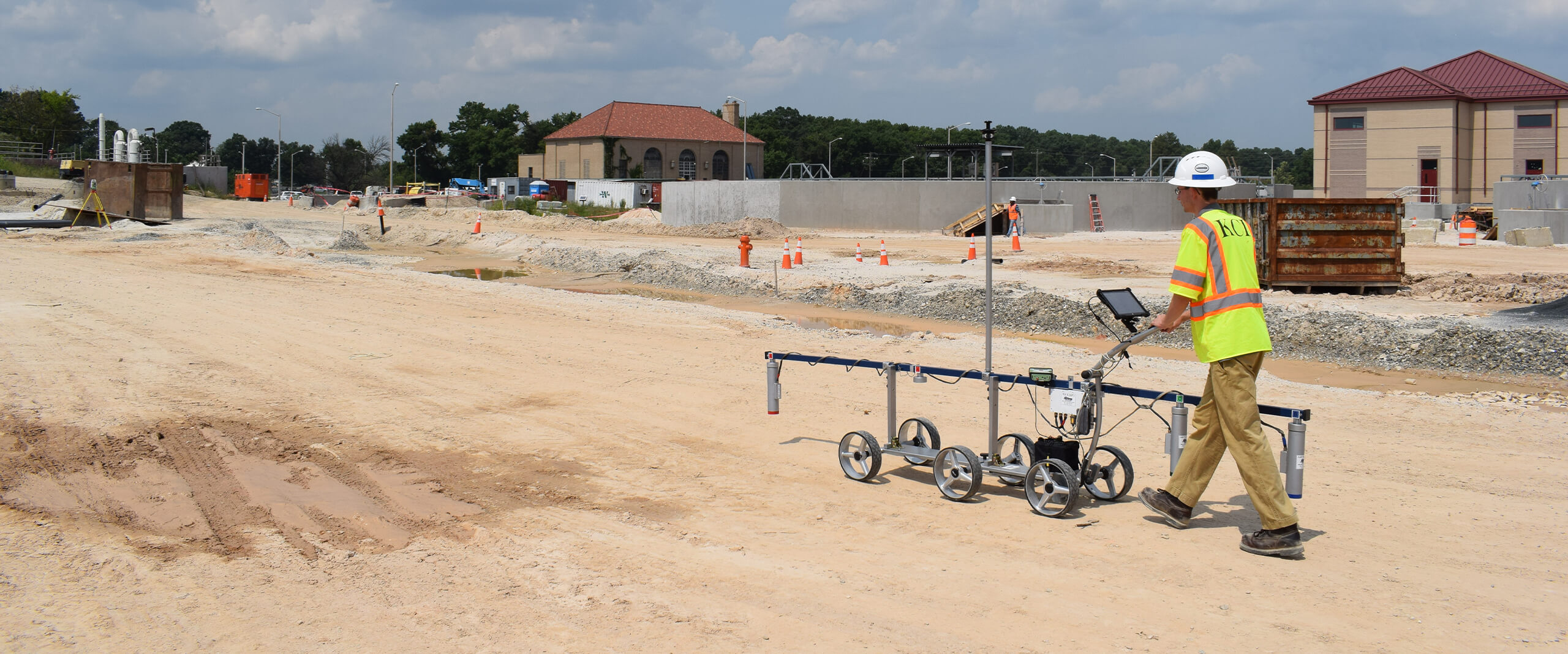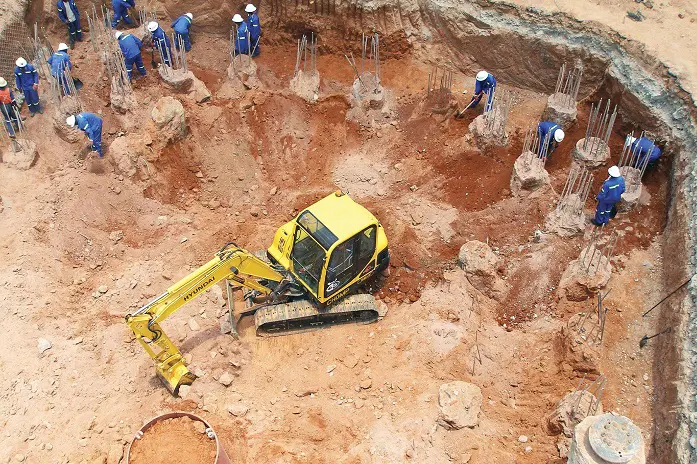Vital Qualities of Effective Civil Consulting Engineers
Vital Qualities of Effective Civil Consulting Engineers
Blog Article
A Comprehensive Introduction of the Key Obligations of Geotechnical Designers in Site Characterization and Ground Renovation Strategies for Engineering Solutions
Geotechnical engineers are integral to the effective execution of design tasks, charged with the important responsibilities of website characterization and the application of ground improvement techniques. Their job entails a thorough analysis of subsurface problems, utilizing different screening approaches to recognize soil and rock residential or commercial properties.
Duty of Geotechnical Designers
Geotechnical designers play a crucial duty in the design and building and construction of facilities by assessing the habits of dirt and rock below the surface area - geotechnical eng. Their obligations encompass assessing subsurface problems to notify layout choices that ensure structural security and safety. By conducting in-depth analyses of soil homes, consisting of shear leaks in the structure, compressibility, and toughness, geotechnical designers provide crucial information that influences the option of proper building and construction materials and methods
In addition to examining soil mechanics, geotechnical designers are tasked with determining possible threats such as landslides, sinkholes, and ground negotiations. Their know-how helps reduce threats related to these geotechnical sensations, therefore shielding both the environment and public security. They also work together closely with other design disciplines, ensuring that geotechnical factors to consider are integrated right into general job layout.
Moreover, geotechnical engineers take part in the analysis of existing frameworks, offering suggestions for retrofitting and repair services when needed. Their thorough understanding of soil-structure communication is vital for the development of lasting framework remedies. In general, the function of geotechnical engineers is essential to the effective realization of building tasks, guaranteeing they are safe, long lasting, and compliant with governing requirements.

Website Characterization Procedures
Effective site characterization processes are vital for understanding the subsurface conditions that influence project design and implementation. Geotechnical designers employ a systematic strategy to gather, evaluate, and translate data relating to rock, groundwater, and dirt qualities. This process begins with a thorough testimonial of existing literature and historical site data, giving understandings right into previous site conditions and prospective obstacles.

Information evaluation follows fieldwork, where designers make use of geostatistical methods to translate searchings for and create geological designs. This modeling help in identifying prospective geohazards, such as landslides or liquefaction, which are important for danger assessment. Subsequently, the results inform layout recommendations, guaranteeing that engineering solutions are both effective and secure. Through diligent website characterization, geotechnical designers lay the foundation for effective task execution, reducing unexpected complications and optimizing source allocation.
Soil and Rock Testing Methods
While understanding subsurface problems is important, the option of appropriate soil and rock screening techniques is just as crucial for accurate analysis and layout. Geotechnical engineers employ a range of testing techniques to examine the mechanical and physical residential or commercial properties of soil and rock materials.
Research laboratory examinations, such as Atterberg limitations, grain size analysis, and unconfined compressive strength examinations, provide important data on soil habits under different moisture conditions and filling circumstances. These examinations aid identify dirt classification and predict settlement or shear toughness features essential for foundation layout.
In-situ screening techniques, including Requirement Penetration Examinations (SPT), Cone Infiltration Examinations (CPT), and pressure meter examinations, enable engineers to collect information straight from the ground. These techniques offer beneficial understandings right into the soil's thickness, uniformity, and stratification without the need for comprehensive sampling.
Rock screening typically includes core sampling and laboratory evaluation to examine residential properties like uniaxial compressive toughness and rock high quality classification (RQD) Together, these soil and rock screening techniques make it possible for geotechnical designers to make informed choices regarding site-specific obstacles, guaranteeing the security and security of engineering remedies.
Ground Renovation Strategies
Ground enhancement strategies are necessary for improving the engineering homes of dirt, thereby raising its load-bearing capability and minimizing settlement. These approaches are important in resolving obstacles presented by troublesome or weak dirts, which can substantially influence the stability and toughness of structures.
Different ground improvement strategies are used, consisting of compaction, grouting, and dirt stablizing. Grouting, on the various other hand, involves injecting a fluid material into the ground to load spaces and improve soil cohesion.
Dirt stablizing encompasses a variety of techniques, from chemical ingredients to mechanical therapies, focused on enhancing the dirt's resistance to erosion and deformation. Methods such as lime stablizing or cement blending alter the buildings of the soil at a bit degree, improving its overall performance.
Importance of Geotechnical Evaluations
Geotechnical analyses play a crucial duty in the preparation and style of engineering projects, as they offer important information regarding the subsurface conditions. Understanding soil residential properties, rock formations, groundwater degrees, and potential geohazards is vital for ensuring the security and safety of structures. These assessments enable designers to make informed decisions concerning website choice, design specifications, and construction methodologies.
The value of geotechnical assessments expands past first project stages; they are crucial in risk management and price efficiency. important link By identifying potential problems early, such as dirt negotiation, incline instability, or extreme groundwater, engineers can create appropriate mitigation approaches, minimizing the likelihood of architectural failures and costly hold-ups. These evaluations sustain conformity with regulative needs and enhance the sustainability of engineering methods.

Verdict
Finally, geotechnical designers are essential to making certain the safety and security and security of design jobs through detailed site characterization and ground renovation methods. geo tech engineering. Their methodical strategy to examining subsurface conditions, integrated with their referrals for efficient ground alteration, substantially boosts soil residential or commercial properties and he said load-bearing ability. The expertise of geotechnical engineers not just helps with enlightened task planning yet additionally guarantees conformity with guidelines and fosters efficient interaction top article amongst stakeholders, ultimately adding to effective engineering outcomes
Geotechnical engineers play a crucial function in the layout and construction of facilities by analyzing the behavior of soil and rock underneath the surface area. By performing comprehensive evaluations of dirt residential properties, including shear compressibility, stamina, and permeability, geotechnical designers supply vital information that affects the option of suitable construction materials and techniques.
In addition to assessing dirt mechanics, geotechnical designers are entrusted with determining possible threats such as landslides, sinkholes, and ground negotiations. Geotechnical designers employ a systematic strategy to collect, review, and analyze information relating to rock, groundwater, and dirt features. By identifying prospective issues early, such as dirt negotiation, incline instability, or extreme groundwater, engineers can devise ideal reduction approaches, lowering the probability of expensive delays and structural failings.
Report this page